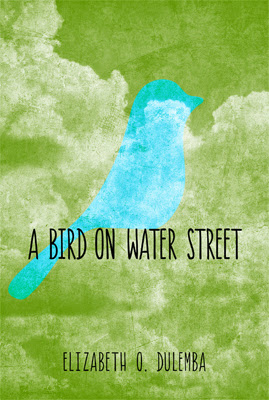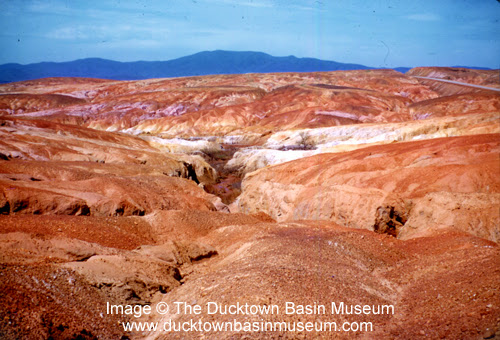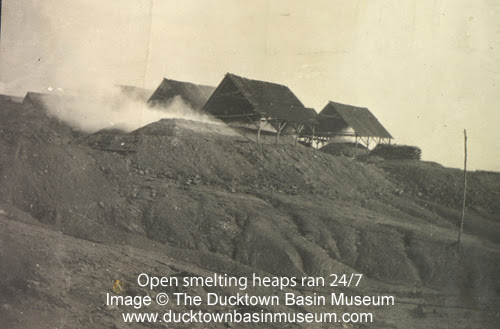Too often, history goes by the wayside when we're inundated with fresh news. But really, history - and life - are composed of small moments, built layer by layer. I was a teen when my cousins moved down to the Appalachian Mountain region and we went to visit. Coming from Michigan, I was surprised not only to see the daily life of being in the mountains, but also the coal trucks and the ways that the coal companies were changing the landscape. It struck me deeply, then, that our energy and the resources we use every day come from the earth - and that the things we do to our planet are often irreversible. It was a seminal moment, one that changed the way I live in the world. But what about places (and practices) that we don't see firsthand - how can we learn about them - and work on change? It's not easy, and there are environmental concerns in every corner of our globe.

I thought of this again when we received a review copy of a wonderful book about these very issues. Entitled A Bird on Water Street, and written by Elizabeth O. Dulemba, it details the living history of copper mining in Appalachia. This is a YA book, for middle readers, but I truly believe it should be read by everyone. It's the story of a mining town - and the environmental awakening of a boy. The writing is lyrical, the characters likeable, the ultimate message one of hope and change. Moreover, the subjects of mining, poverty, and striking in the 1980s are handled sensitively, through the eyes of a miner's son. It is hard to believe that this not only happened during my lifetime, but that it is STILL happening. This book was a joy to read, as the story flowed easily, and you care about the ending. I am now reading it to our daughter, who also loves it - and then we go research about mining, and how kids can make a difference. This book? It's changed her life - and it may change yours (and your kids' lives), too. I highly recommend it.
We were lucky enough to catch up with author Elizabeth Dulemba, and ask her about her book, inspiration, living in a mining town, and more. Here's what she had to say...

Please tell us about your book, A Bird on Water Street…
A Bird on Water Street is a coming of age story about Jack, a boy growing up in a Southern Appalachian town environmentally devastated by a century of poor copper-mining practices and pollution. Jack is opposed to the mine where so many of his relatives have died, but how can he tell that to his Dad who wants him to follow in the family trade? Jack just wants his dad safe and the land returned to its pre-mining glory with trees, birds, frogs, and nature--like he's learning about in school. After Jack's uncle is killed in a mining accident and the Company implements a massive layoff, the union organizes and the miners go on strike. It seems Jack's wish is coming true. But the cost may be the ruin of his home and everything he loves. When the birds return to Water Street, will anyone be left to hear them sing?


What inspired you to write this book?
I have often said that I never chose to write A BIRD ON WATER STREET - I was chosen. It all began when my husband and I moved to Epworth, Georgia, a hiccup of a town at the southern tip of the Appalachian mountains. It was a difficult place to make new friends, so when we were invited to attend a town meeting, we went! The meeting turned out to be between miners and the Copper Mining Company about a potential scenic railway routed to go north from town around a rare switchback. The Company said it would fund the train by reopening the chemical plant and sending out one shipment of sulfuric acid per week. One by one, the miners stood up in denim and plaid flannel like old, gnarled oak trees. They told heart-wrenching stories about all their family and friends they’d lost to cancers and injuries they attributed to the mines. They made thinly veiled threats that the tracks would be sabotaged if the plans moved forward. I sat in shock wondering what I’d stumbled into.

You've lived in a mining town - what was it like to live where one organization/company influenced everything?
When we moved to the area, the mining company had already been closed for several years. In fact, we were only mildly aware of its history until that meeting. Then the world opened up its immense and intricate layers. It fell into the vein of “you can’t make this stuff up.” It was also a tribute to the resilience of Mother Nature. I couldn’t not write about it, truly. The company had been such a huge part of everybody’s lives there and they were eager to talk about it once they heard what I was up to.

What do you hope readers will take away from your book?
Hope! It’s so easy to see the environmental damage in Copperhill, Tennessee (called Coppertown in the book) as irreparable, too big for any one person to do anything about – certainly a young boy. And yet I’ve seen the reclamation first-hand. Nature can be aggressive! These days, it takes driving down abandoned dirt roads to find evidence of the once denuded landscape. Every person who planted a seed, a tree, or worked with the wetland efforts played a part in returning the land to its natural state. It’s taken years, decades, but it has happened. And in our world of climate change and global warming, I think the idea that one person can make a difference is an important lesson.

How can readers help change the environment, and bring back nature (like Jack did)?
We can do the simple things first - recycle, turn off lights, limit our water usage, etc. But we can also do larger things like vote responsibly, support companies who support the environment (and not those who don’t), and best of all - plant a tree! (I was so flattered when a reader did just that in honor of my book!)
What's up next for you?
Well, I just returned home from teaching Picture Book Design in the MFA in Children’s Book Writing and Illustrating at Hollins University. Meanwhile, I have several new novels in the works. The one I’m most focused on right now is another environmental mid-grade. I also have several picture book manuscripts with my agent, and am illustrating a series of picture books for a local children’s hospital - a very feel good, fuzzy project which I am thoroughly enjoying. I have a ton of speaking engagements coming up as well. It’s never dull in my world!
Is there anything else you'd like to share?
Yes! I’m thrilled to announce that A BIRD ON WATER STREET has won a 4th award: the eLit 2014 Gold Medal Award in the Environment/Ecology/Nature category - what an honor! It’s also a Southern Independent Booksellers OKRA pick, a gold Mom’s Choice Award winner, and is the featured title for the state of Georgia at the National Book Festival this year! It seems that when people have a chance to read A BIRD ON WATER STREET, they gush (over 40 five and four star reviews on Amazon). But as with all books, it’s a matter of readers finding it. I hope your readers will help spread the word and let educators know I am available for school visits! I also do a ton of giveaways on my blog each week (coloring pages, picture books and novels) - folks can subscribe at http://dulemba.blogspot.com.
TEACHERS!
A Bird on Water Street will make a perfect Common Core Curriculum tie-in to Earth Day studies as well as Reading (Literature), Science (Geology, Ecology, and Biology), Social Studies (Mining, Community, Union Labor, and Capitalism), Geography, History, and environmental responsibility every day of the year. CLICK HERE for the Teachers Guide!
Learn more at: http://dulemba.com/ABirdOnWaterStreet.html
A Bird on Water Street, and written by Elizabeth O. Dulemba, details the living history of copper mining in Appalachia
Posted by:
Jessica Voigts
